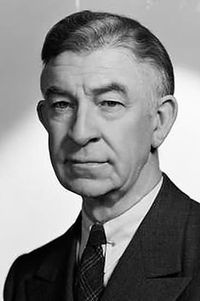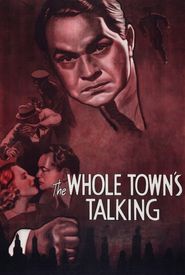Arthur William Byron, a distinguished American actor, entered the world on April 3, 1872, as the offspring of a family with a rich theatrical heritage. His parents, Kate Crehan and Oliver Doud Byron, were both accomplished actors in their own right, thereby fostering a deep appreciation for the performing arts within their son from a very tender age. Moreover, his maternal aunt, the highly respected stage actress Ada Rehan, served as a testament to the profound influence that the world of theatre could have on an individual's life, as Byron's affinity for the performing arts was clearly evident from his early years.
At the remarkably young age of 17, Byron took his first tentative steps into the world of theatrical performance, entering the realm of his father's esteemed dramatic company. This pivotal moment in his life marked the onset of a storied career that would endure for an astonishing five decades, with Byron's 50th anniversary in the entertainment industry being celebrated in the year 1939.
The extraordinary life and career of the renowned actor, Byron, was marked by a plethora of unforgettable moments, as he had the esteemed privilege of sharing the stage with an array of the most iconic stars of his era, including the illustrious Maxine Elliott, the celebrated Ethel Barrymore, the esteemed John Gielgud, the acclaimed Katherine Cornell, the revered Maude Adams, and the legendary Minnie Maddern Fiske.
Throughout his illustrious career, Byron's remarkable talent and unwavering dedication to his craft led him to appear in an astonishing 300 plays, cementing his reputation as a respected and accomplished actor, whose work continues to be cherished and admired by audiences and critics alike.
Byron's profound impact on the world of theater transcended his remarkable acting achievements, as he was a visionary leader who played a pivotal role in shaping the industry's trajectory. As a founding member and former president of the esteemed Actor's Equity Association, he demonstrated his unwavering commitment to the welfare and well-being of his fellow actors, tirelessly advocating for their rights and interests.
In addition to his esteemed leadership role within the Actor's Equity Association, Byron's dedication to the craft of acting was further exemplified by his officer positions within the Actor's Fund of America and The Lambs, two renowned organizations that have been instrumental in providing support and resources to the theatrical community.
Noteworthy among Byron's numerous theatrical endeavors is his repeated presence at the prestigious Lakewood Playhouse in Maine, where he has had the distinction of gracing the stage on multiple occasions.
Notorious for his untimely demise, Byron's existence was abruptly terminated on July 16, 1943, due to a debilitating heart condition that had plagued him for a prolonged period of time.
Despite his arduous struggle with this affliction, Byron's life was ultimately extinguished by the cruel hand of fate, leaving behind a legacy that would be forever tinged with sadness and regret.
Following his passing, Byron's mortal remains were transported to his summer residence in Maine, where they were subsequently laid to rest in a solemn and dignified ceremony.









































